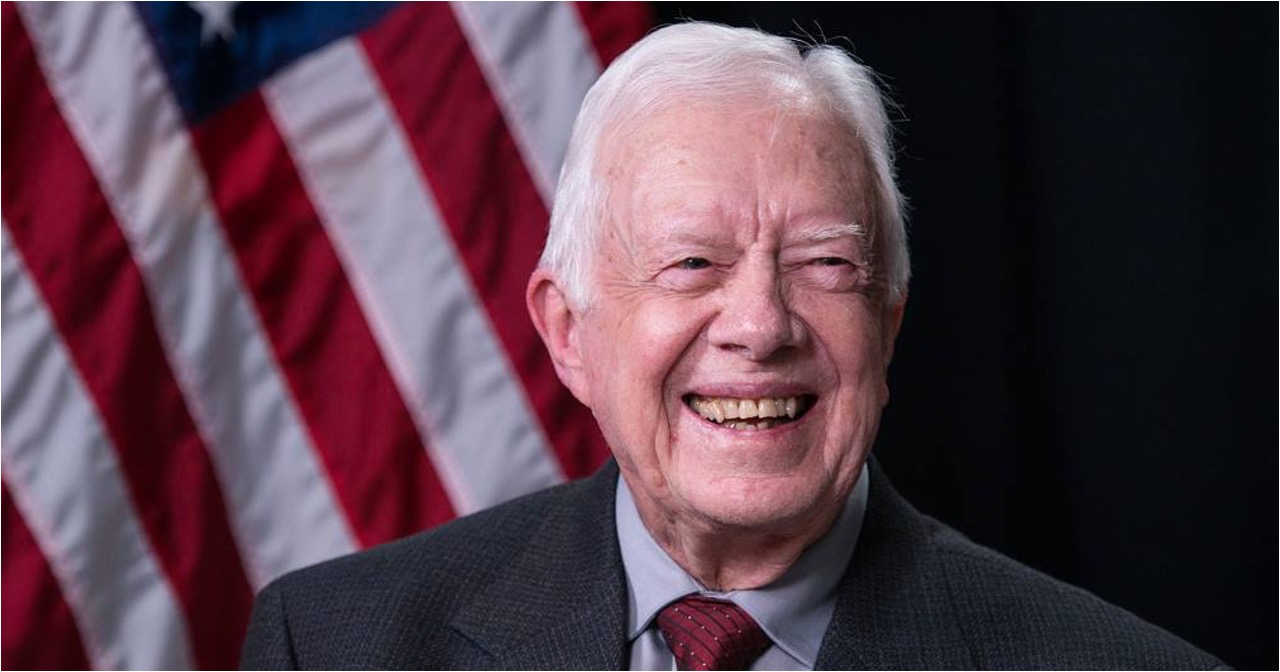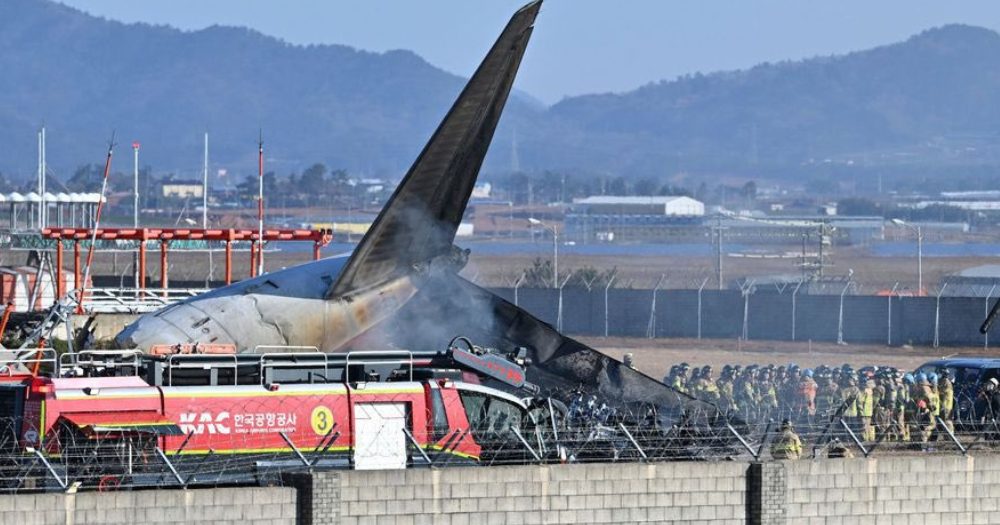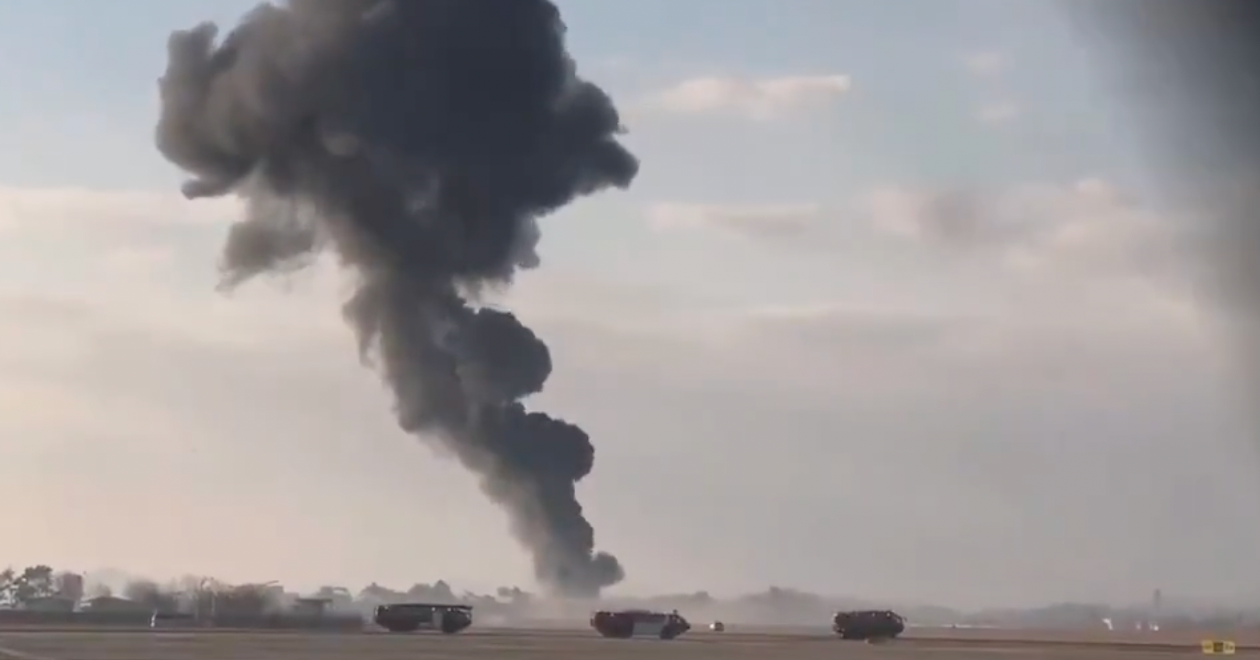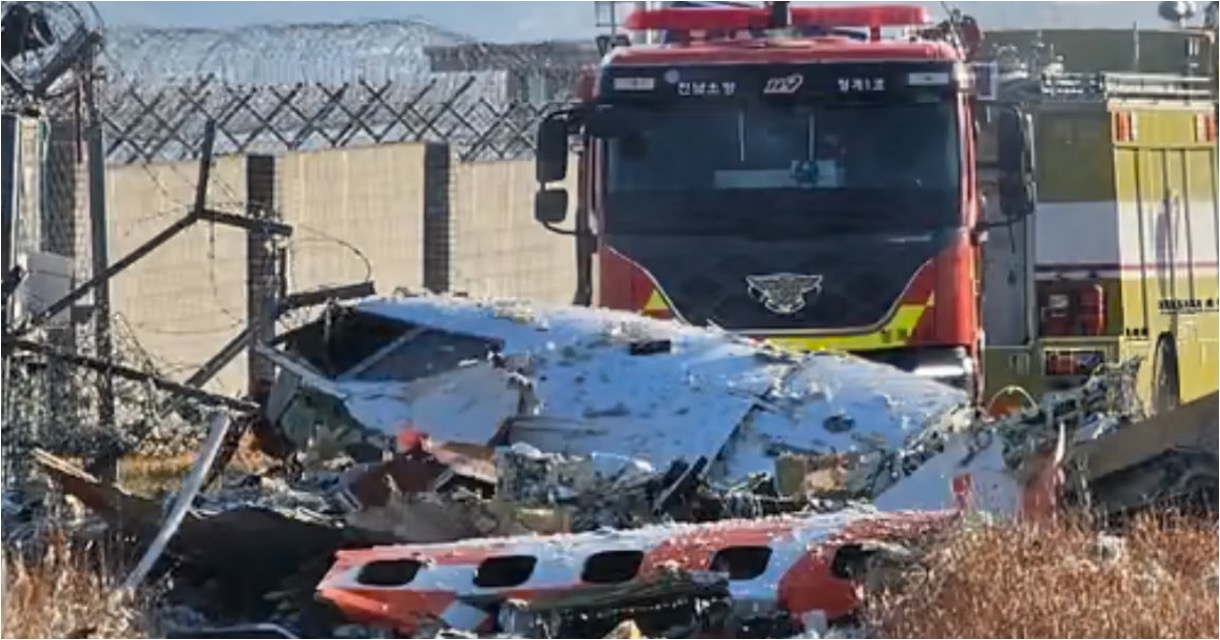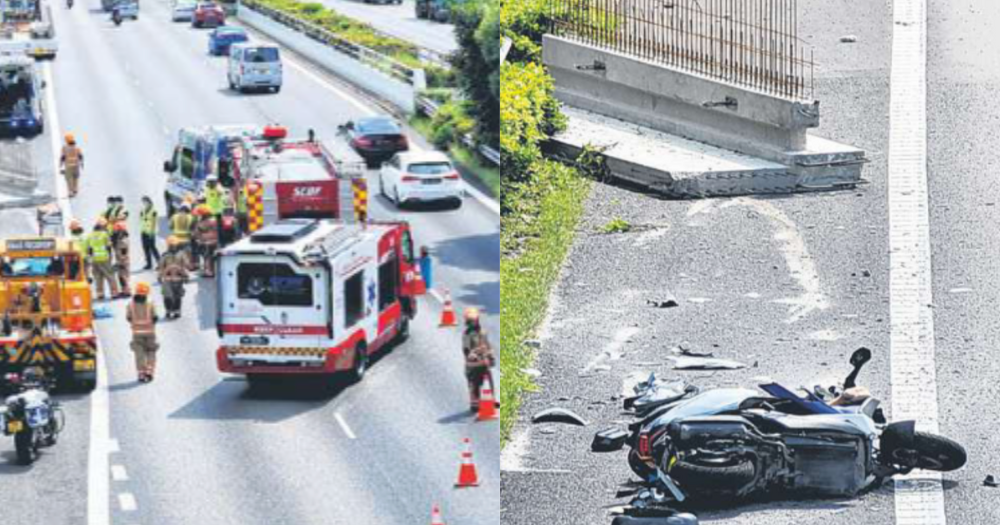Jeju Air CEO apologises for Muan airport plane crash, South Korea declares period of mourning till Jan. 4, 2025
179 passengers and crew are presumed dead.
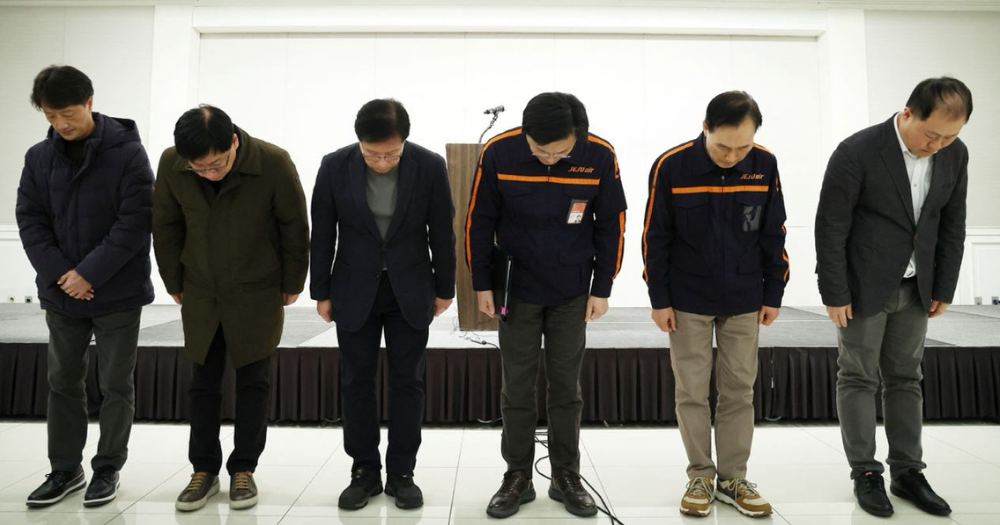
The chief executive officer (CEO) of Jeju Air, Kim E-Bae, apologised on Dec. 29, 2024, following the deadly plane crash of Jeju Air flight 7C2216 at Muan International Airport in South Korea.
Kim and other executive officers of Jeju Air bowed in apology ahead of a briefing in Seoul about the disaster.
"We extend our deepest condolences and apologies to the passengers who lost their lives in the accident and to their bereaved families," Kim said, The Korea Times reported.
Kim added that the cause of the crash was yet to be determined and that the aircraft had no early signs of malfunction or a record of accidents.
"Regardless of the cause, I take full responsibility as the CEO," Kim said.
South Korea’s acting president, Choi Sang-mok, has also declared a period of national mourning until Jan. 4, 2025.
Death toll hits 177, youngest passenger was three years old
The Boeing 737 had 181 persons aboard, with six crew members and 175 passengers. At least two of the passengers were Thai nationals.
The Jeju Air flight, which was returning from Bangkok, Thailand, veered off the runway and collided with a fence.
According to The Guardian, the death toll from the incident has risen to 177, consisting of 84 women, 82 men and 11 others whose genders could not be immediately identified.
Five of the people who were killed in the crash were children under the age of ten. The youngest passenger aboard the flight was a three-year-old boy.
Over 1,500 emergency personnel were activated for the recovery effort after the crash.
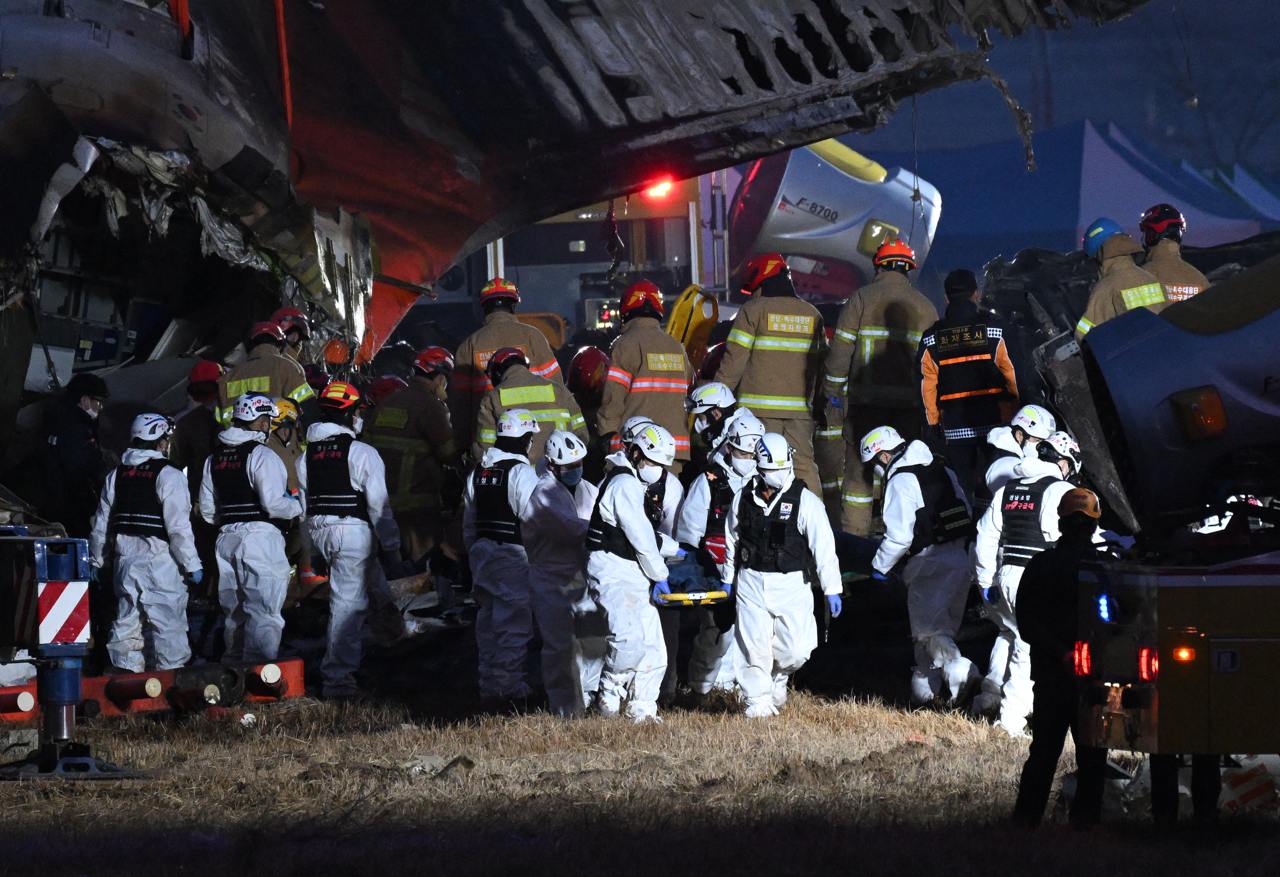 Photo by JUNG YEON-JE/AFP.
Photo by JUNG YEON-JE/AFP.
179 passengers and crew are presumed dead, with two survivors receiving treatment at a hospital near Muan airport.
Families of the deceased gathered in the airport's arrival hall hours after the crash. They could be heard screaming and crying as the victims were identified by medics on-site, The Guardian reported.
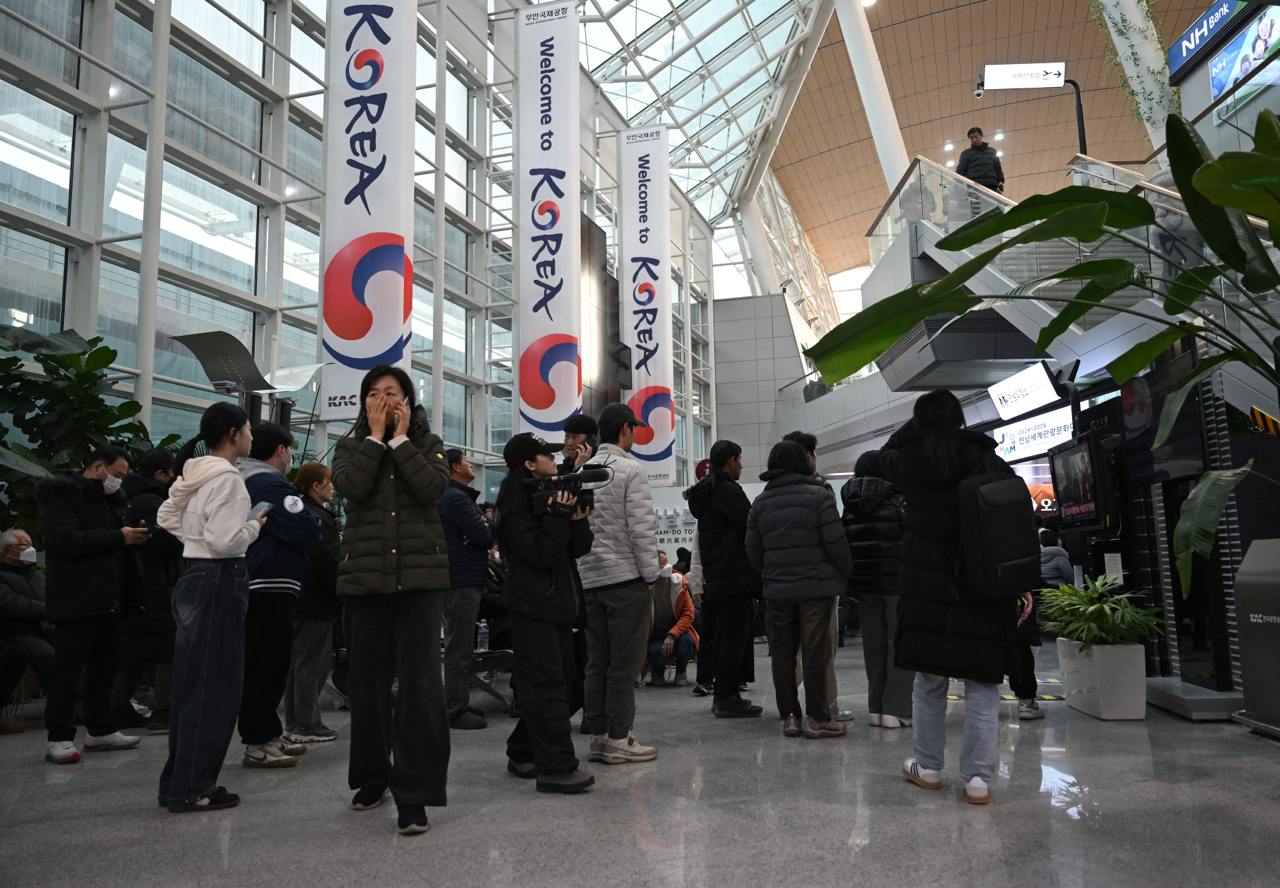 Photo by JUNG YEON-JE/AFP.
Photo by JUNG YEON-JE/AFP.
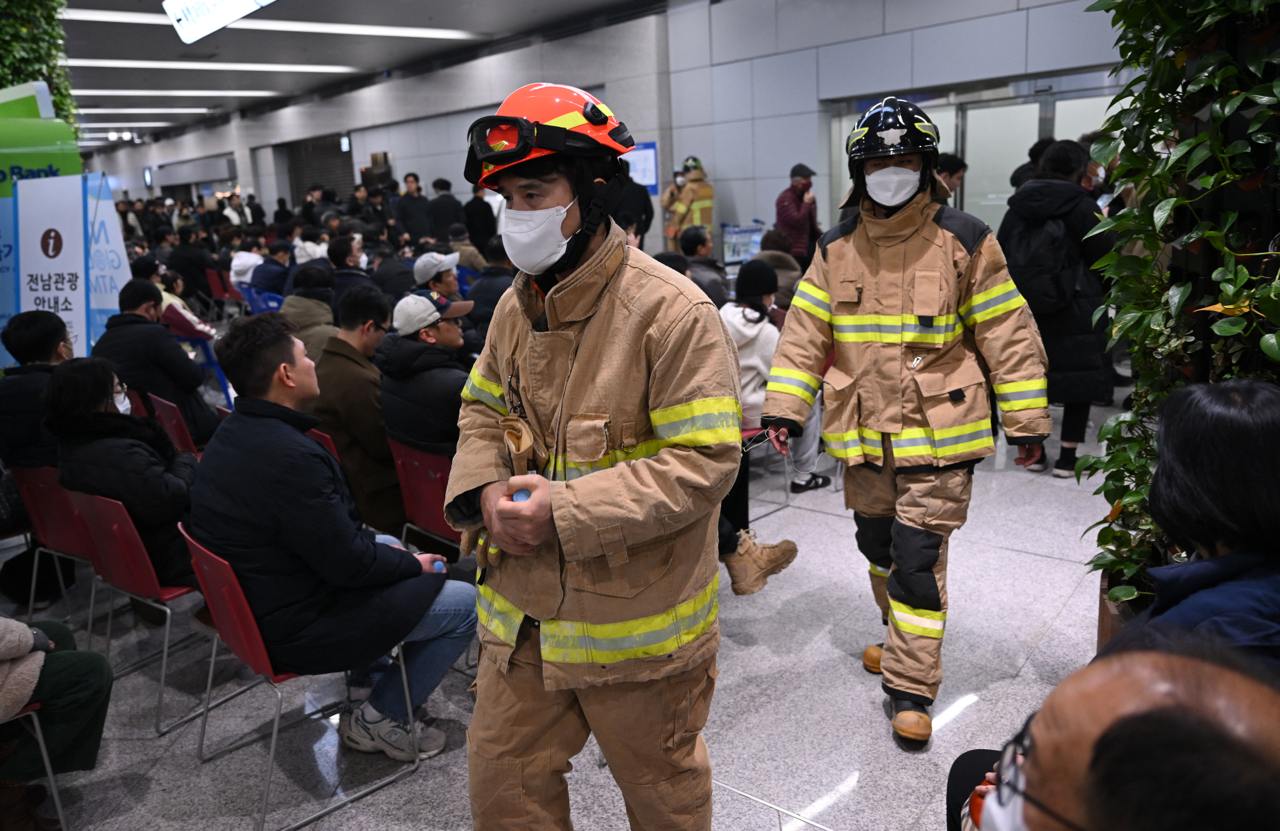 Photo by JUNG YEON-JE/AFP.
Photo by JUNG YEON-JE/AFP.
Two survivors receiving treatment
Two survivors are receiving treatment at a hospital near the airport.
One of the survivors, a flight attendant, had no memory of the crash when asked by hospital workers at Mokpo Hankook Hospital about his condition, The Straits Times reported.
“What happened? How am I here?” he reportedly replied.
His last memory was putting on a seatbelt before the landing.
Aircraft received bird strike warning minutes before crash
According to Korean media Yonhap, a bird strike is believed to be one of the causes of the Jeju Air accident.
A bird strike refers to when a bird hits the fuselage or engine of a plane during take-off, landing, or cruising.
Bird strikes can be dangerous, potentially causing fires.
Unusually large flock of birds spotted on Dec. 29 morning
According to The Guardian, an unusually large flock of birds was spotted over Muan International Airport’s runway on the morning of Dec. 29, a few hours before the crash.
The Muan International Airport, in particular, is more prone to bird strikes relative to other regional airports in South Korea.
The bird strike rate at the airport is the highest amongst the regional airports in the country, at 0.09 per cent.
This, The Guardian reported, is due to its location near fields and coastal areas.
Air traffic controllers had also warned the aircraft about bird strike risks minutes before the accident.
The number of bird strikes at all airports has also been steadily increasing over the years, going up from 108 in 2019 to 152 in 2023.
According to Yonhap, one possible reason for this increase is climate change, which has led to more migratory birds becoming resident birds.
Top photo from YONHAP/AFP.
MORE STORIES









